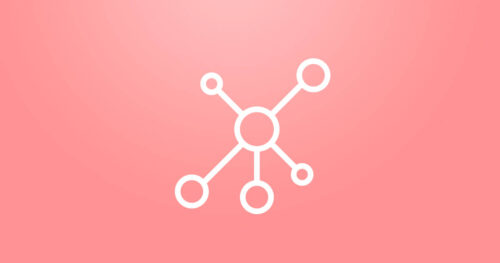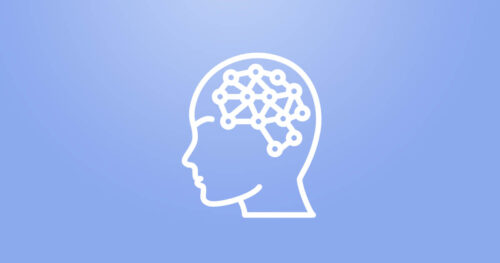This course explores the use of AI in the context of GitHub Copilot, a generative AI tool for developers. It equips users with the knowledge and skills to use Copilot effectively while mitigating potential ethical and operational risks associated with AI usage.
-
CompTIA CloudNetX validates your ability to design and implement secure, scalable networking solutions in hybrid environments. You’ll cover key areas like security design, network monitoring, performance optimization, and advanced troubleshooting, with hands-on skills such as Zero Trust implementation. This certification equips you with the expertise to advance your career as a network architect, security architect, or enterprise architect.
CloudNetX equips tech professionals with advanced skills to design, engineer, and integrate secure, scalable networking solutions in hybrid environments. Building on Network+ and Cloud+, this certification addresses the intricate challenges of modern enterprises. With CloudNetX learning and certification, candidates will master navigating both on-premises and cloud-based systems, making them sought-after experts.
-
Learn how to harness the power of Apache Spark and powerful clusters running on the Azure Databricks platform to run large data engineering workloads in the cloud.
-
Generative Artificial Intelligence (AI) engineering with Azure Databricks uses the platform’s capabilities to explore, fine-tune, evaluate, and integrate advanced language models. By using Apache Spark’s scalability and Azure Databricks’ collaborative environment, you can design complex AI systems.
-
In this course, you’ll learn the basics of GitHub and gain a better understanding of its fundamental features with a hands-on exercise all within a GitHub repository. You’ll learn best practices for building, hosting, and maintaining a secure repository on GitHub.
-
GitHub Foundations introduces you to the fundamental concepts, features, and products of GitHub. You’ll discover the benefits of using GitHub as a collaborative platform and explore its core features, such as repository management, commits, branches, and merging.
Through curated modules and hands-on exercises, you’ll gain a solid understanding of GitHub’s essential tools and be well-equipped to start contributing to projects and collaborating effectively within GitHub.
-
-30%
In this course, you learn about data engineering on Google Cloud, the roles and responsibilities of data engineers, and how those map to offerings provided by Google Cloud. You also learn about ways to address data engineering challenges.
Upskill in introduction to data engineering with 30% off – limited-time price: RM1680
-
G Suite just got better — introducing Google Workspace. Content delivered by our partners may still include some references to G Suite as updates are being made but you will still receive relevant training. If you’re a Google Workspace admin who needs to manage and establish Google Workspace best practices for your organization, the lectures and hands-on labs in this course will show you how to use the features in the admin console so that you can manage users, control access to services, configure security settings, monitor Google Workspace operations, and more
-
Learn the business value and product capabilities of Microsoft Power Platform. Connect data with Dataverse, build simple canvas and model-driven apps, automate a process with Power Automate, and build a Power Pages site.
PRO Tip: What makes Power Apps different from other tools such as SkyBow, Stratus Forms, FlowForma and more? Do check out our latest Design Customized Apps with Microsoft Power Apps blog post to know more.
-
This DP-601T00: Implementing a Lakehouse with Microsoft Fabric course is designed to build your foundational skills in data engineering on Microsoft Fabric, focusing on the Lakehouse concept.
This official Microsoft course will explore the powerful capabilities of Apache Spark for distributed data processing and the essential techniques for efficient data management, versioning, and reliability by working with Delta Lake tables. This course will also explore data ingestion and orchestration using Dataflows Gen2 and Data Factory pipelines.
This course includes a combination of lectures and hands-on exercises that will prepare you to work with lakehouses in Microsoft Fabric.
-
Developing Web Applications with JavaScript, HTML5, and CSS
Develop front-end web application using JavaScript, HTML5 and CSS. Course starts with the coverage of web application fundamental concepts, JavaScript language syntax, construction user interfaces using HTML5 and CSS, building application logic using JavaScript, and eventually progresses to advanced topics such as using JavaScript to interact with server-side components, such as WebServices and WebSockets.
-
The Oracle WebLogic Server 14c: Administration I certification is a globally recognized qualification designed to validate an individual’s expertise in administering Oracle WebLogic Server solutions. It covers critical aspects such as creating WebLogic domains, deployments, and undertaking troubleshooting.
Gaining this certification verifies an individual’s aptitude in Oracle WebLogic Server’s core functionality and its application within enterprise environments. Many industries regard this certification highly as it helps in optimizing system performance, scalability, and reliability.
Thus, the certification is highly sought after by systems administrators, architects, and developers seeking to enhance their skills in leveraging Oracle WebLogic Server for building and deploying enterprise applications.
-
This Oracle WebLogic Server 14c: Performance Tuning Workshop Certification is a specialized qualification that demonstrates proficiency in optimizing the performance of Oracle WebLogic Server applications. It covers concepts like JVM performance tuning, garbage collection, and network optimization. It’s crucial for Industries relying on Oracle’s Java EE application server solution as it helps in efficient resource utilization, reduces downtime, lowers costs and improves application performance.
This certification equips IT professionals with the knowledge to diagnose and solve performance problems, appropriate configuration of server elements, and effectively manage and monitor resources, thus enhancing operational efficiency and productivity.
-
In this one-day course, you will learn to maximize the benefits of generative AI systems, mastering techniques that lead to optimal output as well as learning entirely new ways to generate and refine documents and images! Learn and practice with hands-on labs that will greatly improve your ability to fully leverage the power of generative AI systems.
-
Harness the power of data with modern machine learning tools and techniques. In this one-day course, you will gain hands-on experience with machine learning libraries and toolkits such as Pandas, NumPy, Seaborn and scikit-learn.
This course is lab heavy and provides hands-on experience with a variety of ML libraries and toolkits.
-
Learn about Large Language Models (LLM) and how RAGs combine generative and retrieval-based AI models to extend the already powerful capabilities of LLMs. Get the knowledge you need about how a RAG works and how it’s assembled from component parts.
With our hands-on labs, you will develop a RAG using existing LLM and AI tools and apply RAG techniques to designs to solve problems.
-
Start prototyping AI applications powered by PyTorch by leveraging popular pretrained models in the fields of Computer Vision and Natural Language Processing covering an extensive span of practical applications.
This course provides hands-on experience to train and fine-tune deep learning models using the rich PyTorch and Hugging Face ecosystems of pre-trained models for Computer Vision and Natural Language Processing tasks. Additionally, you will be able to deploy prototype applications using TorchServe, allowing you to quickly validate and demo your application.
-
This course will teach you the skills to deploy software with confidence, agility and high reliability using modern practices such as Continuous Integration (CI) and Continuous Delivery (CD).
Moreover it will help you to be agile and deliver features rapidly, while at the same time being able to achieve non-functional requirements such as availability, reliability, scalability, security, and more.
-
This course prepares you with real life professional skills to implement DevSecOps practices into the software development and delivery processes.
DevSecOps practices are an extension to standard DevOps practices, focusing on automating security and incorporating it as part of the process, which includes Continuous Delivery, Infrastructure-as-Code (IaC), and observability. Use of DevSecOps results not only in delivering safer code faster, but also facilitates early feedback to developers, helping them build more reliable software. This course explores implementing DevSecOps practices into the software delivery pipeline using open source software.
-
Increase your earning potential by learning Jenkins, a key tool in CI/CD pipelines vital to today’s DevOps practices, enabling teams to deliver high-quality software quickly and efficiently.
With the skills to proficiently leverage Jenkins to scale CI/CD servers and configure multi-branch pipelines and the ability to automate and streamline workflows using IaC and GitOps principles you will be prepared to take on advanced DevOps, SRE and other software development leadership roles.
-
Learn how GitOps could help you deploy to a Kubernetes environment with a simple pull request from git. Understand the key principles, practices, tools and benefits of using GitOps.
Start your GitOps journey with confidence. This course will give you foundational knowledge about key GitOps principles, tools and practices, helping you build an operational framework for cloud native applications primarily running on Kubernetes. This will eventually help you set up and automate your continuous delivery pipeline to Kubernetes, leading to increased productivity and efficiency for tech roles.
-
Position yourself as an expert in automating complex cloud native environments with Jenkins X skills and open doors to new roles like DevOps Engineer, Lead Cloud Architect or Platform Engineer.
You’ll be prepared to expertly manage cloud native CI/CD workflows, lead DevOps automation efforts, and advance into high-demand senior or leadership cloud native roles.
-
Master the art of automating Kubernetes deployments by implementing GitOps – the set of practices that enable developers to carry out tasks that traditionally fell to operations personnel – with Flux CD.
This course will give you in-depth knowledge on how to implement Flux CD and GitOps practices to set up a Continuous Delivery pipeline on your Kubernetes environments, and provide a sense of operational control via git-based workflows like branching models and pull requests.
-
Generative Artificial Intelligence (AI) is becoming more accessible through comprehensive development platforms like Azure AI Foundry. Learn how to build generative AI applications that use language models to chat with your users.
As of 13th June, the AI-102 Develop AI Solutions in Azure course has been updated and restructured by combining together these five 1-day AI courses into a single, comprehensive learning experience:
- AI-3016: Develop generative AI apps in Azure
- AI-3026: Develop AI Agents on Azure
- AI-3002: Develop AI information extraction solutions in Azure
- AI-3003: Build a natural language processing solution with Azure AI Services
- AI-3004: Build an Azure AI Vision solution with Azure AI services
This update provides learners with a more cohesive and in-depth journey through key AI concepts and applications.










